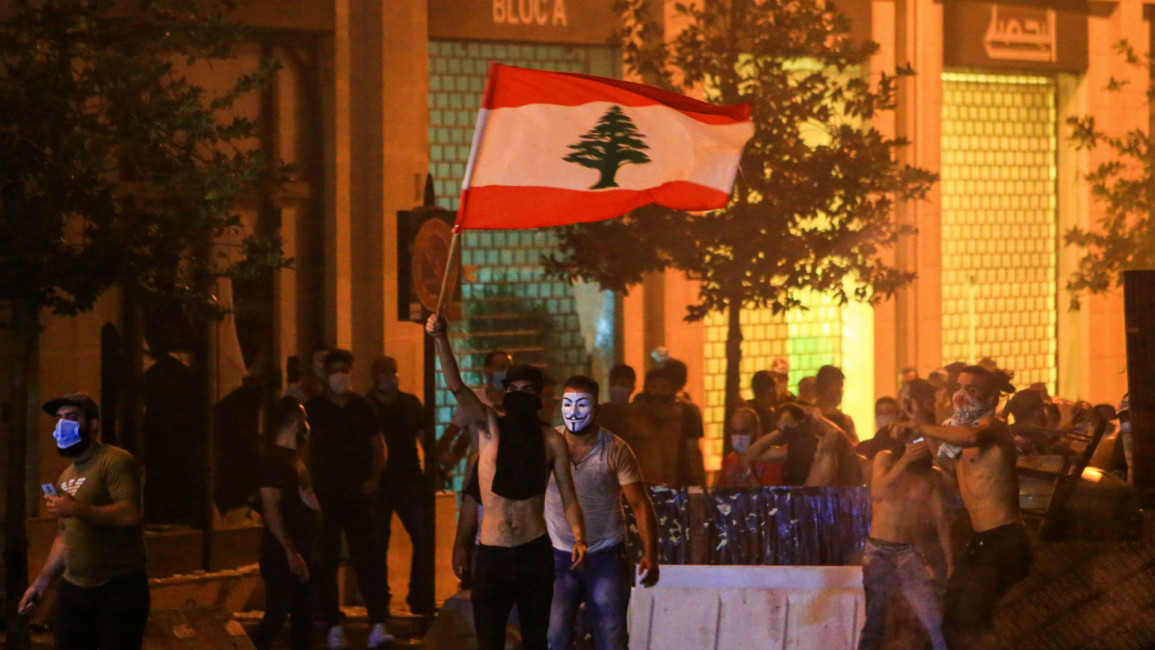Security forces crack down as Lebanon protests rage against ruling elite
Lebanese security forces cracked down on mass protests in Beirut on Friday as demonstrators rallied for the second day against ruling elites who they blame for decades of corruption and mismanagement.
Demonstrations flared on Thursday, partly sparked by a proposed tax on calls via messaging apps such as WhatsApp, and grew into the largest in recent years, threatening to topple Prime Minister Saad Hariri's fragile coalition government.
The protesters are demanding a sweeping overhaul of Lebanon's political system, citing grievances ranging from austerity measures to poor infrastructure.
Read more: Lebanon Rises: Second wave of Arab Spring protests arrive in Beirut
Security forces on Friday fired rubber bullets and tear gas at protesters in Downtown Beirut, with Lebanese media reporting that more than 70 people had been arrested.
So far at least 23 protesters have been injured, according to the Red Cross.
Twitter Post
|
Soldiers were also deployed on a bridge near the Bechara al-Khoury highway and were seen aiming their weapons at demonstrators.
The road to Beirut's international airport was blocked by protesters, stranding passengers who in some cases were seen dragging suitcases on foot to reach the airport. Major arteries including the Salim Salam tunnel that connects central Beirut with the airport were blocked with sand piles of sand.
Police also deployed water cannons to disperse protesters near the parliament and government headquarters.
Read more: Lebanon burns with hope and fury
In a televised address on Friday evening, Prime Minister Saad Hariri said he understood the protesters' anger and was trying to push through change.
Many protesters had been expecting Hariri to announce his resignation.
He called on his coalition partners to give a "clear, decisive and final response to convince me, the Lebanese people and the international community... that everyone has decided on reforms, or I will have something else to say."
He gave them a 72-hour deadline to do so, without directly threatening to resign.
After his speech, clashes flared in central Beirut's Riyadh al-Solh Square between demonstrators and security personnel, who fired volleys of tear gas to clear the plaza.
Twitter Post
|
Groups of rioters broke away from the protesters, setting cars ablaze and smashing store windows in the streets of Beirut. Others marched on the presidential palace in a southeast suburb of the capital.
Time and again, the protesters shouted "Revolution!" and "The people want to bring down the regime," echoing a refrain chanted by demonstrators during Arab Spring uprisings that swept the region in 2011.
They took aim at every single political leader in the country, including President Michel Aoun and his son in law, Foreign Minister Gebran Bassil, as well as the prime minister and parliament speaker, blaming them for systemic corruption they say has pillaged the country's resources for decades.
The tension has been building for months, as the government searched for new ways to levy taxes to manage the country's economic crisis and soaring debt.
They are the largest demonstrations since a 2015 refuse collection crisis sparked widespread anti-government protests.
Agencies contributed to this report.


![President Pezeshkian has denounced Israel's attacks on Lebanon [Getty]](/sites/default/files/styles/image_684x385/public/2173482924.jpeg?h=a5f2f23a&itok=q3evVtko)



 Follow the Middle East's top stories in English at The New Arab on Google News
Follow the Middle East's top stories in English at The New Arab on Google News


